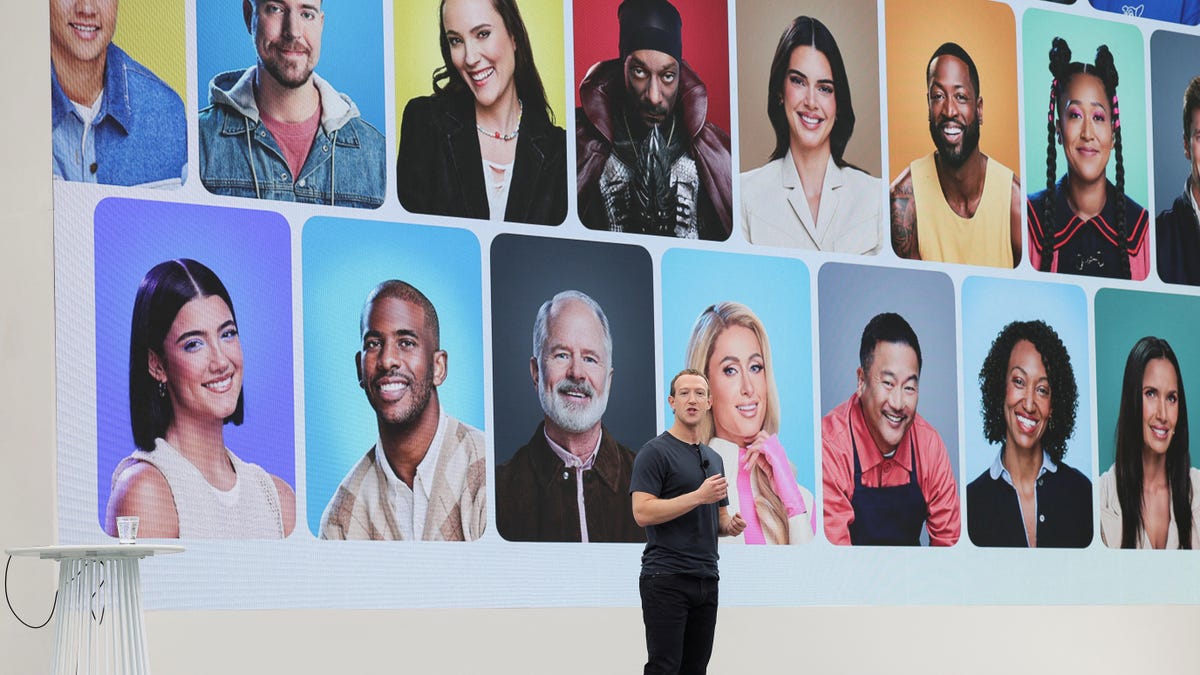At its annual developer conference this week, Meta made an exciting announcement about its new lineup of AI-related products. Meta AI, a conversational AI assistant, will soon be available on WhatsApp, Messenger, and Instagram in the US. But that’s not all – the chatbot will also be integrated into Ray-Ban smart glasses and the virtual reality headset Quest 3.
In addition to the general assistant, Meta is introducing over two dozen AI assistants with unique interests and personalities inspired by real people, including Kendall Jenner, Naomi Osaka, and Snoop Dogg. Kendall Jenner’s assistant is described as “Bille, No-BS, ride-or-die companion,” Naomi Osaka’s as “Tamika, Anime-obsessed Sailor Senshi in training,” and Snoop Dogg’s as “Dungeon Master, Choose your own adventure with the Dungeon Master.” Meta has paid them for the AI characters but has not disclosed the details of the compensation.
The idea behind these AI assistants is to provide users with specific purposes, such as learning new skills or exploring particular interests. Meta is also launching AI-powered stickers, which will be available on WhatsApp, Messenger, Instagram, and Facebook stories starting next month. Users will be able to generate unique stickers through text prompts on these platforms.
Meta is joining the AI assistant market, competing with companies like OpenAI’s ChatGPT and Google’s Bard. A startup called Character.AI, valued at $1 billion, is also in the business of building customized AI bots and has called out Meta’s likeness on Twitter, highlighting the intense competition in the AI chatbot race. The success of these new AI assistants remains uncertain, but Meta will gather user data to improve the products based on user feedback.
Not all AI bets will pan out
Meta is not the only company making such bets. Big Tech companies like Microsoft have had their share of unsuccessful experiments, such as Clippy. These companies aim to stay relevant and launch various generative AI tools and pet projects to gather valuable user data. For example, when Google introduced its virtual try-on clothing shopping feature powered by generative AI earlier this year, the main purpose was to collect data for refining search targeting, which is Google’s primary source of revenue. Similarly, Meta can gain insights into user interactions with its chatbots to provide more relevant content to its users.
According to Ashwini Asokan, founder and CEO of Mad Street Den, data collection is a crucial aspect of these projects. While there is a history of trial and error in Big Tech, there is also a significant focus on data collection. With Meta’s endeavors, it’s likely that something will eventually resonate with users and prove successful.
Denial of responsibility! Vigour Times is an automatic aggregator of Global media. In each content, the hyperlink to the primary source is specified. All trademarks belong to their rightful owners, and all materials to their authors. For any complaint, please reach us at – [email protected]. We will take necessary action within 24 hours.


